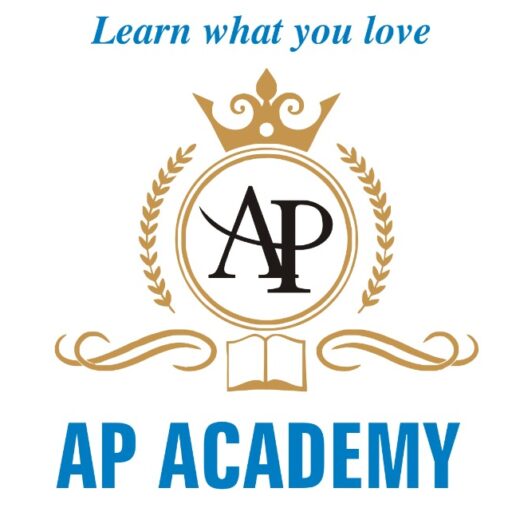CMA FOUNDATION
About This Course
CMA Full Form: Cost and Management Accounting
Choosing Cost and Management Accounting as a career option is a great idea. CMA course is designed to nurture young minds into business leaders of tomorrow.
Contemporarily, the CMA course is gaining immense popularity among commerce students, especially students who want to make it big in their career in the field of Cost and Management Accounting. If you are also curious to know about the course details, continue reading to find out full details about the CMA course in India.
CMA Course Details
CMA course is almost a three-year program that is offered by the Institute of Cost and Management Accountants of India in the field of Accountancy. It consists of three levels- Foundation, Intermediate, and Final. The course is a pathway for acquiring one of the most reputable jobs in India as that of a Cost Management Accountant. Each level has to be qualified by the applicant in order to earn the accreditation as a CMA. Here are the important deadlines and other relevant information related to the CMA/ICMAI course that prospective candidates must abide by before applying:
Foundation ICMAI Course: Admissions open throughout the year.
⦁ For those intending to sit for the June term examination must apply before the January 31st of the same year
⦁ For those intending to sit for the December term examination, they must apply before July 31st of the same year.
Intermediate and Final ICMAI Course: Registration is open throughout the year.
⦁ If you are planning to appear for the June term examination, then you must fill the applications before January 31st of the same year.
⦁ For those intending to sit for the December term examination, they must apply before July 31st of the same year.
Eligibility Criteria
The eligibility conditions for the ICMAI course differ with respect to the Foundation or Intermediate program. Take a look at the below-given table which lists down the specific requirements.
1. Must have qualified Class Xth or equivalent from an accredited board/college/university
2. Must have qualified Senior Secondary Examination as per the 10+2 pattern from an accredited Board,
OR
Passed an examination recognised under the Central Government as equivalent
OR
Qualified National Diploma in Commerce Examination conducted by the All India Council for Technical Education [AICTE] or a State Board of Technical Education under AICTE
OR
Completed a Diploma in Rural Service Examination conducted under the authority of the National Council for Higher Education.
Note: Candidates awaiting final exam results are also eligible for admission.
⦁ ICMAI merged with other professional courses like CIMA, ACCA, C.S, ETC.,
⦁ Note: Generally people tend to confuse between terms like ICWAI, ICWA, ICMAI and CMA. So to remove all your doubts, let us tell you that there is no difference between ICWAI and ICMAI except the name. ICWAI (Institute of Cost & Works Accountants of India) has changed its name to the ICMAI (Institute of Cost Accountants of India). Also, ICWA course has been renamed as CMA course.
Foundation Course:
- PAPER 1: Fundamentals Of Business Laws and Business Communication (FBLC)
- PAPER 2: Fundamentals Of Financial and Cost Accounting (FFCA)
- PAPER 3: Fundamentals Of Business Mathematics and Statistics (FBMS)
- PAPER 4: Fundamentals Of Business Economics and Management (FBEM)
CMA Intermediate Course Syllabus
The CMA Intermediate syllabus is divided into two groups, Group I and Group II. The topics are as follows:
CMA Intermediate Course Group – I
- PAPER 5: Business Laws and Ethics (BLE)
- PAPER 6: Financial Accounting (FA)
- PAPER 7: Direct and Indirect Taxation (DITX)
- PAPER 8: Cost Accounting (CA)
CMA Intermediate Course Group – II
- PAPER 9: Operations Management and Strategic Management (OMSM)
- PAPER 10: Corporate Accounting and Auditing (CAA)
- PAPER 11: Financial Management and Business Data Analytics (FMDA)
- PAPER 12: Management Accounting (MA)
As discussed, there are 3 levels to becoming a certified CMA professional. However, apart from clearing papers, you also need to complete professional training at the Intermediate and Final levels.
CMA Intermediate Level Training
- Computer Training (100 Hours)
- Communication and Soft Skills Training (CSS) – 3 Days
- Practical Training (15 Months)
CMA Final Level Training
At the final level, you will have to undergo a mandatory, 7 days long, Industry Oriented Training Programme (IOTP). Extensive knowledge will be imparted on direct and Indirect taxation, book-keeping, cost and treasury management, among others. Furthermore, emphasis will also be laid on Business Etiquette, Soft Skills, along with interview and presentation skills.
CMA Final Course Syllabus
The CMA syllabus for the Final course exam is divided into Group III and Group IV. The topics are of advanced level. Take a look at the topics below.
Final Course Group – III
- PAPER 13: Corporate and Economic Laws (CEL)
- PAPER 14: Strategic Financial Management (SFM)
- PAPER 15: Direct Tax Laws and International Taxation (DIT)
- PAPER 16: Strategic Cost Management (SCM)
Final Course Group – IV
- PAPER 17: Cost and Management Audit (CMAD)
- PAPER 18: Corporate Financial Reporting (CFR)
- PAPER 19: Indirect Tax Laws and Practice (ITLP)
- PAPER 20: One of the following subjects
- PAPER 20A: Strategic Performance Management and Business Valuation (SPMBV)
- PAPER 20B: Risk Management in Banking and Insurance (RMBI)
- PAPER 20C: Entrepreneurship and Start Up (ENTS)
Cost Accountants are in great demand in government sector, private sector, banking & finance sector, developmental agencies, education, training & research sector as well as in service and public utility sector. Further, in view of their specialized knowledge and training, CMAs may hold top management position in public and private sectors’ enterprises like Chairman cum Managing Directors, Managing Director, Finance Director, Financial Controller, Chief Financial Officer, Cost Controller, Marketing Manager and Chief Internal Auditor and other important positions.
At AP Academy we want you to succeed in your qualification, and will support you every step of the way, but we need you to put in the effort too. Practice makes perfect, so make sure to leave as much time as possible for exam preparation and practice questions.
-
CMA FOUNDATION
apacademycourse
Agile Project Expert







